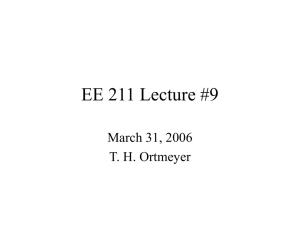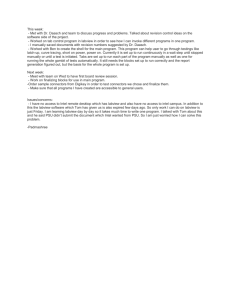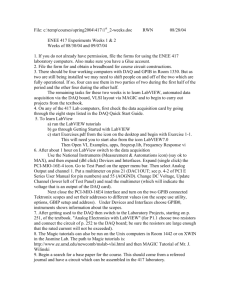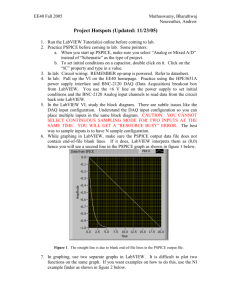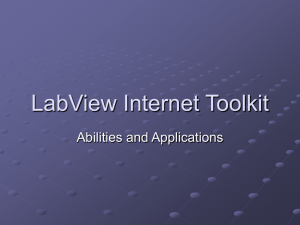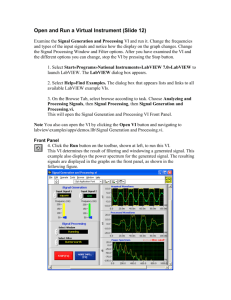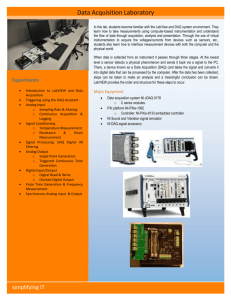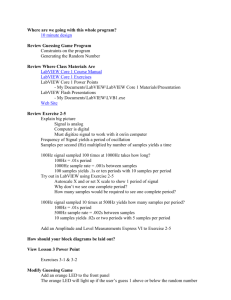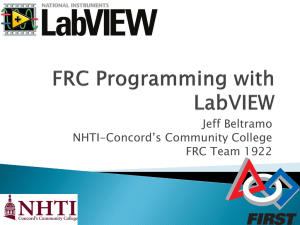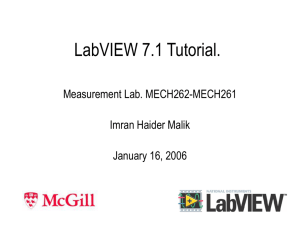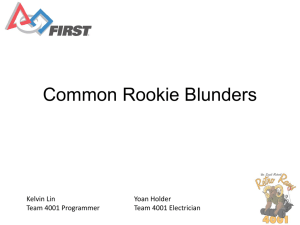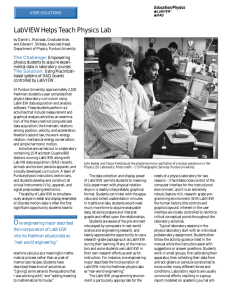Almgren - International Technology and Engineering Educators
advertisement
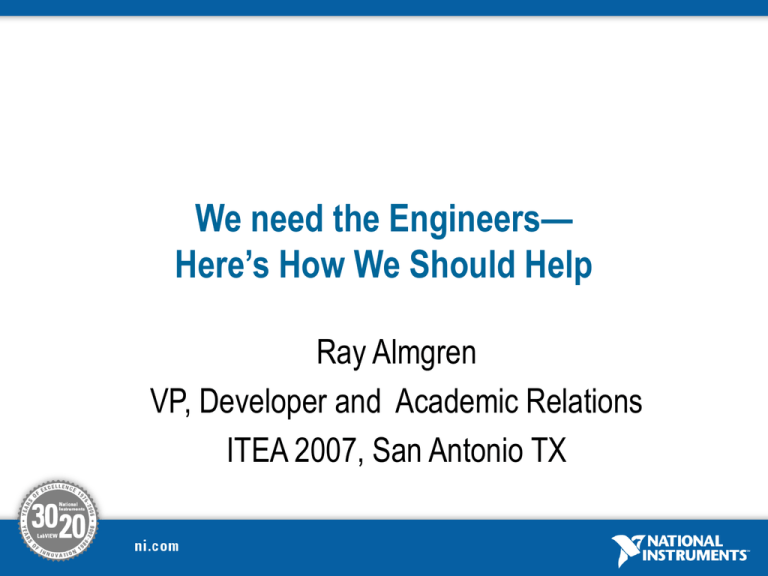
We need the Engineers— Here’s How We Should Help Ray Almgren VP, Developer and Academic Relations ITEA 2007, San Antonio TX You want leadership… • Fact: 17% of Fortune 500 CEO’s have a business degree • Fact: 20% have an engineering degree Source: US News and World Reports 2 Brief History of Engineering in the US • The pre-war Apprentice • Vannevar Bush/ Frederick Terman – “A Community of Scholars” • • • • Sputnik – October 4, 1957 1987 Peak Graduation Rate 1990 Wanning Interest, but Huge Economic Success 2000 The “Quiet Crisis” 3 Today’s Challenges: #1 converging complexity, changing technologies PC/WWW/Email GPS Navigation CD+RW Mobile Phone PDA DVD+RW Automotive Telematics Unit Satellite Car Alarm/Radio Games AM/FM Stereo Remote Diagnostics 4 Today’s Challenges: #2 Global Design to Manufacturing • Design Anywhere, Build Anywhere is a fundamental challenge of this decade • Common platforms and methods are critical to ensuring Speed AND Quality Design/ Validation Design/ Validation Mfgrg Design/ Validation NI HQ Mfgrg Mfgrg Mfgrg 5 Trends in Engineering Education • Integrate theory with more hands-on experiences • Collaborative, project-based learning • Design, design, design • Creativity and Innovation 7 Hands-on PBL for STEM Education Measurement and Instrumentation PCI/PXI/USB DAQ Circuit Design and Simulation NI ELVIS Control, Simulation, and Mechatronics PCI Systems Signal and Image Processing NI CompactRIO NI SPEEDY-33 DSP Starter Kit (DSK) NI and Wireless Communications Embedded Systems 8 Software Engineering Trends System design platform C# Abstraction C++ C Assembly language Machine code System complexity 9 Abstracting System Complexity with Software LabVIEW LabVIEW * CC* * does not include code to generate UI 10 Rensselaer Polytechnic Institute Human Transporter Project (Senior Design Project: 3 Students, 13 Weeks) Theory 4 Weeks Design Prototype 8 Weeks Deploy 1 Week 11 Rigor/Relevance Framework 6 Knowledge 5 4 3 2 Application 1 1 2 3 4 5 12 Blaise/Daggett: Rigor and Relevance Bloom’s 6 5 4 3 2 1 C D A B 1 2 3 4 5 Application 13 Critical Elements of “Engineering” Programs • • • • • • Economically Viable A Vision and Plan for National Adoption Comprehensive Curriculum Major Public and Private Support Integrated with Commercial Technology Capable of Changing our Culture 14 Some Great Examples www.pltw.org Project Lead the Way: Learning with LabVIEW Biomedical Sciences Vernier Sensor DAQ Digital Electronics NI Multisim 17 The Infinity Project • State-of-the-art classroom technology • Exciting design examples – – – – Build digital music instruments Create new special effects for movies Secretly encode messages between students Turn PC into a cell phone 18 19 II. Organization & Programs FIRST 501 (c) (3) not-for-profit public charity Founded 1989, by inventor Dean Kamen Headquarters in Manchester, NH Board Chairman John Abele, Founder Chairman of Boston Scientific $20 million operating budget 2,000 corporate sponsors 45,000 volunteers II. Organization & Programs Range of Programs K-12 FIRST Robotics Competition FIRST Vex Challenge FIRST LEGO League Junior FIRST LEGO League K 1 2 3 4 5 6 7 Grade Level 8 9 10 11 12 T-STEM Initiative Texas Science Technology Engineering and Math Initiative $71M in public/private funding initiative to pilot innovative ways to increase the number of students who enter these career fields T-STEM Goals Create 35 T-STEM Academies Establish 5-6 T-STEM Centers throughout Texas Develop statewide best practices Network Increase pool of highly qualified STEM teachers and school leaders Where are the Engineers of 2020? nd 2 In Grade 8 year olds 24 25 Abstracting System Complexity with Software LabVIEW LabVIEW * CC* * does not include code to generate UI 26 National Instruments Confidential What to tell your Corporate Partners 1. 2. 3. 4. 5. Invest ONLY in leveraged programs Fund technology and curriculum Work through Universities that work with you Don’t just show up for Engineer’s Week Have the CEO frequently contact state legislators about STEM 28 It’s OK to have fun! ni.com/academic 29
